 W
WAlfredo Armas Alfonzo was a Venezuelan writer, critic, editor and historian, well known throughout Latin America. He was a master of the modern fable, a precursor of what soon would be called magical realism.
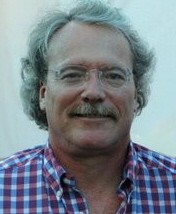 W
WAlberto José Barrera Tyszka is a Venezuelan writer. In 2006, he received the Herralde Prize for his novel La enfermedad.
 W
WRufino Blanco-Fombona (1874–1944) was a Venezuelan literary historian and man of letters who played a major role in bringing the works of Latin American writers to world attention. He is buried in the National Pantheon of Venezuela. He was nominated for the Nobel Prize in Literature six times.
 W
WEduardo Blanco (1838–1912), Venezuelan writer and politician, was aide-de-camp to General José Antonio Páez, independence hero and first president of Venezuela after the breakup of Gran Colombia in 1830.
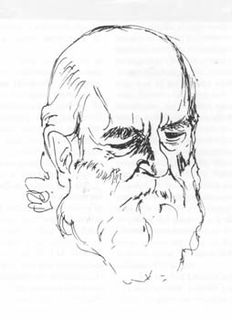 W
WJosé Manuel Briceño Guerrero was a Venezuelan writer, philologist and philosopher. A large part of his work was published under the pen-name Jonuel Brigue.
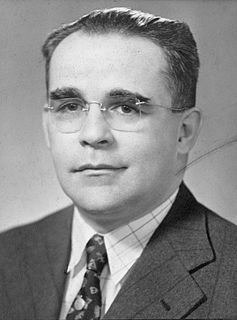 W
WMario Briceño Iragorry, was a Venezuelan intellectual and cultural analyst. He was also a notable writer, politician, journalist, lawyer, historian, diplomatic and teacher. He won the National Prize for Literature in 1948. The Mario Briceño Iragorry Municipality in Aragua is named for him.
 W
WLuis Britto García is a Venezuelan writer, playwright and essayist. His fiction has been recognised twice with the Casa de Las Américas Prize, for his works Rajatabla (1970) and Abrapalabra (1979). In 2002 he was the winner of Venezuela's National Prize for Literature, given as a lifetime achievement award. In 2005 he was recognized with the Ezequiel Martínez Estrada honorary award of Casa de Las Américas. In April 2012 he received Venezuela's Order of Juan Francisco de León. In May 2012 he was appointed by President Hugo Chávez to the Venezuelan Council of State, "the highest circle of advisers to the president" provided for in the Venezuelan Constitution.
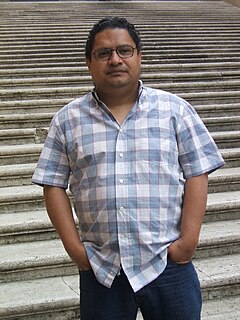 W
WJuan Carlos Chirinos García is a Venezuelan writer and creative writing teacher. He is a novelist, story writer and biographer.
 W
WManuel Díaz Rodríguez, was a Venezuelan writer, journalist, physician, diplomat and politician. He is considered one of the greatest representatives of the Hispanic modernismo movement. He also served as director of Higher Education and Fine Arts at the Ministry of Education in 1911, Minister of Foreign Affairs between 1913 and 1914, Senator for the Bolívar state in 1915, Minister of Development in 1916, Minister Plenipotentiary of Venezuela in Italy from 1919 until 1923, Head of Government of the states Nueva Esparta (1925) and Sucre (1926). He became a member of the National Academy of History in 1926. He died in New York City, where he had traveled for treatment of a throat ailment, in 1927.
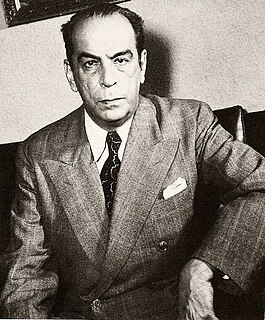 W
WRómulo Ángel del Monte Carmelo Gallegos Freire was a Venezuelan novelist and politician. For a period of nine months during 1948, he governed as the first freely elected president in Venezuela's history.
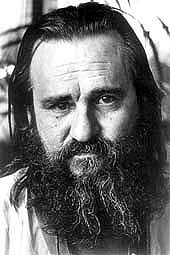 W
WSalvador Garmendia Graterón was a notable Venezuelan author, awarded in 1972 with the National Prize for Literature. In 1989 received the Juan Rulfo Prize for Tan desnuda como una piedra.
 W
WAdriano González León was a Venezuelan writer who is known in his country for the novel País Portátil (1968), widely regarded as the premier Venezuelan novel of the latter half of the 20th century, and for his many years of hosting a television program dedicated to promoting literary appreciation among the general public.
 W
WJonathan Jakubowicz is a Venezuelan filmmaker and writer, winner of the German Film Peace Prize 2020 for his film "Resistance". His film Secuestro Express was nominated for Best Foreign Language Film at the British Independent Film Awards and was a New York Times "Critics' Pick" in 2005. He is of Polish-Jewish descent.
 W
WEduardo Liendo Zurita is a Venezuelan writer and scholar. His novella Mascarada won Honorable Mention in the "Fiction City Award" and the Pedro León Zapata humor prize in 1981. In 1985, he received the Municipal Prize for Literature. and in 1990, the CONAC book award.
 W
WFrancisco Massiani was a Venezuelan writer and painter. His first novel, Piedra de mar has been a bestseller since its publication. It's a Bildungsroman of a middle class teenager in Caracas. Massiani, won the Municipal Prize of Prose in 1998, and in 2005, the V annual contest of the Fundación para la Cultura Urbana, for the storybook Florencio y los pajaritos de Angelina, su mujer. In 2006, he published his first book of poetry. In 2012 he won the National Prize for Literature, as a recognition to his entire body of work.
 W
WJuan Carlos Méndez Guédez is a Venezuelan writer born in Barquisimeto, Venezuela in 1967. From an early age, he and his family moved to Caracas, where he lived in the popular area of Los Jardines del Valle, but always kept a close connection with his native hometown. He earned a Bachelor of Arts from the Central University of Venezuela with a thesis on poetry groups "Traffic" and "Guaire". Later he earned a Ph.D. in Hispanic American Literature from the University of Salamanca with a thesis on the Venezuelan writer José Balza.
 W
WGuillermo Meneses was a Venezuelan writer, playwright, and journalist. He was the author of La Balandra 'Isabel' llegó esta tarde and Campeones, among other works. His awards and honors include the Venezuelan National Prize for Literature (1967), the "Order of the city of Caracas", and the "Andrés Bello Order" created by President Rafael Caldera.
 W
WMiguel Otero Silva, was a Venezuelan writer, journalist, humorist and politician. A figure of great relevance in Venezuelan literature, his literary and journalistic works related strictly to the socio-political history of Venezuela. Throughout his life he was repeatedly forced into exile. Later on, after the establishment of a democratic state in 1958, he was elected to the Venezuelan Senate.
 W
WAntonia Palacios was a Venezuelan poet, novelist and essayist. She won the National Prize for Literature in 1976 and the Municipal Prize for Literature in 1982. Along with Miguel Otero Silva, Pablo Rojas Guardia, and Luis Castro, she was a member of the Generation of 1928.
 W
WTeresa de la Parra was a Venezuelan novelist.
 W
WMariano Federico Picón Salas was a Venezuelan diplomatic, cultural critic and writer of the 20th century, born in Mérida on January 26, 1901, and died in Caracas on January 1, 1965. Among his books, his collection of essays on history, literary criticism and cultural history are remarkable. He travelled a lot through the Americas. His work is also important because of his wide perspective, studying the culture of the entire continent. He left Venezuela, under the political persecution of dictator Juan Vicente Gómez. Living for a large period in Chile, he studied history, gaining the degree of “Profesor de Historia” and later a doctorate in philosophy and letters.
 W
WCamilo Pino La Corte is a Venezuelan novelist. He was born in Caracas, Venezuela in 1970, the son of historian Elias Pino Iturrieta. He is the author of Crema Paraíso, Mandrágora and Valle Zamuro,.
 W
WJosé Rafael Pocaterra was a Venezuelan writer, journalist and politician. He was imprisoned in 1907 to 1908 for his work on the opposition newspaper Caín, and again from 1919 to 1922 after participating in Luis Rafael Pimentel's attempt to overthrow the dictator Juan Vicente Gómez. Whilst in prison, where he was tortured, he wrote the history book Memorias de un venezolano de la decadencia and the novel La casa de los Ábila. Later he participated in Román Delgado Chalbaud's ill-fated 1929 Falke expedition aimed at over-throwing Juan Vicente Gómez. Under Eleazar López Contreras he was Minister of Communications (1939–1941), and then held a variety of ambassadorial posts until he resigned as Ambassador to Washington in 1950 following the assassination of Carlos Delgado Chalbaud.
 W
WArturo Uslar Pietri was a Venezuelan intellectual, historian, writer, television producer and politician.
 W
WOscar Armando Yanes González was a Venezuelan journalist and bestselling author, considered a pioneer in Venezuelan broadcast journalism. He was awarded by three times with the National Prize for Journalism.